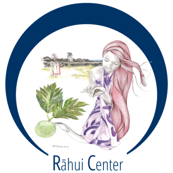Our vision
Science at the service of communities for preserved lagoon ecosystems
We are working in French Polynesia, alongside local communities, to sustainably preserve coral ecosystems. Affected by global pressures, such as climate change, or invasive and polluting human activities (e.g. overfishing or coastal urbanization), they are threatened with extinction.
Rāhui, or locally managed marine areas, offer concrete solutions for the sustainable preservation of these ecosystems, which are home to significant biodiversity and contribute to the food security of Polynesian populations.
Prior to European contact, rāhui was a type of resource and territorial management – sacred – based on a temporary prohibition on the taking of a land or marine resource. Today, rāhui incorporates a diverse range of management measures, going from a ban on all activities in a defined area to a set of rules for fishing or other uses. We are working alongside communities to support the development of this participatory management approach.
© Alexis Rosenfeld
From participatory to autonomous management by the communities
We are committed to working with local communities so that they are able to manage their own resources sustainably and autonomously. In a collaborative approach, we help local populations to identify the issues specific to their territory and to define appropriate management objectives. Our ambition is to train and equip local actors with useful skills in order to support the empowerment of Polynesian communities. They must be able to choose and implement adapted management measures that directly affect them. This is how they will contribute to the implementation of ambitious governance of coral ecosystems as a common good and how they will influence the development of global policies for fisheries management and the preservation of reef-lagoon ecosystems.
Science at the service of communities
We provide local communities with scientific expertise that complements local knowledge. We mobilize scientifically developed protocols and technologies to conduct baseline studies, support our recommendations and facilitate decision-making by the communities. We are also developing methods to evaluate the management measures implemented, in order to adjust the measures if necessary.
Thanks to statistical analyses, ecological and economic modelling tools, and social science and
ethnographic surveys, we contribute to the production of new knowledge, made available to local communities, for best adapted and effective management.
